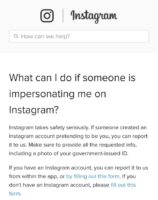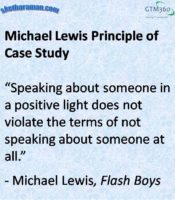If you glance through LinkedIn, you’ll find a lot of people who claim to be big shots at the Amazons, Googles and Microsofts of the world when they’re not.
Neither LinkedIn nor the companies named in these fake profiles seem to give a damn about these impersonators.
Even I’m guilty of the nonchalant behavior: There are a couple of people whose LinkedIn claims that they’re employees of GTM360. Although they are not, I’ve never reached out to LinkedIn even once with a request to take down their profiles.
At the dawn of the Internet, New Yorker magazine ran a famous cartoon with the following caption: “On the Internet, nobody knows you’re a dog”.
Nearly 30 years later, nobody knows you’re not a big dog.
Per anecdata, you can pretty much claim to be VP of Microsoft or Director of Oracle or Head of Engineering of Google or whatever. Just make sure that the title you’ve chosen to embellish your profile with is not high enough on the totem pole to be featured on the About Us page of the respective company’s website. If you’re “modest” like that, you can claim to be a Big Dog on the Internet without being called out by anybody!
But it’s not only LinkedIn.
We can see examples of rampant impersonation elsewhere on the Internet.
#1. TWITTER
According to The Philadelphia Inquirer, the American Northeast city of Philadelphia booted out a firm called Philly Fighting Covid from its Covid-19 vaccination program when PFC surreptitiously switched itself from Non Profit to For Profit. (Click here if you wish to know the difference between the two corporate structures.)
According to residents of the city, PFC is a blatant impersonator.
scam undisguised. The city booted them out of the vaccination program. No expertise in what they claimed to do. CEO gave vaccines to friends while people go without.
— Stessa Cohen (@stessacohen) January 29, 2021
Despite being called out in public, PFC continues to lie on the bio page of its Twitter account by claiming to be
- A Non Profit Organization
- Working with Philadelphia Public Health.
Nobody seems to be bothered!
On a side note, regarding personal data collected from vaccine registrants, the Founder of PFC tells The Philadelphia Inquirer in the aforementioned article that his company will not sell the personal data but it will share it with others!
I won’t even hazard a guess what “won’t sell, just share” means but it’s certainly not what we meant in our blog post entitled Your Personal Data Is Not Sold, Just Used!
#2. HARVARD UNIVERSITY
A famous TV anchor announced last year that she quit her employer of 20 years to take up the position of Associate Professor at Harvard University.
She recently claimed that she was the victim of a vicious phishing attack and that Harvard had never made any offer of employment to her.
This sounded incredulous to many people and naturally triggered an outrage on Twitter a few weeks ago.
Some tweeples wondered how Harvard did not detect the journalist’s claims of working with them.
For all we know, Harvard did – but couldn’t care less.
#3. TRUECALLER
A scam artist can register themselves as your bank on TrueCaller and get away with it!
I heard about this form of impersonation from a recent communication from ICICI Bank (Top 3 private sector bank in India).
The online scammers are active again, and this time they are using a new trick. If your bank’s toll-free helpline number is 1800 123 1234, then the conman acquires a similar number – e.g. 800 123 1234 – and registers it under your bank’s name on the Truecaller app.
When you get a call from this number, you see your bank’s name on your mobile phone display and are likely to take the call. If you’re not careful, the scammer can harvest your personal details and, in the worst case, decamp with money from your bank account.
#4. INSTAGRAM
 Impersonation is a big problem on Instagram. It affects not only people with an Instagram account but also those who are not on the world’s most popular photo-sharing social network. If I run into an impostor, I know how to report them to Instagram.
Impersonation is a big problem on Instagram. It affects not only people with an Instagram account but also those who are not on the world’s most popular photo-sharing social network. If I run into an impostor, I know how to report them to Instagram.
#5. GOOGLE
WhiteHatJr, an EdTech startup targeting teens for training in coding, was recently acquired by the world’s most valuable EdTech company Byju’s for $400 million.
The one year old startup allegedly ran a very sharp advertising campaign on social networks. While I haven’t seen its social media ads, they apparently featured a testimonial from a 16 year old boy called #WolfGupta who claimed to be working as a developer at Google and earning INR 20 crores (US$ 2.5M) a year.
Many people on LinkedIn were asking how come Google never spotted this impostor and put a stop to his obviously false claims.
The thing is, Google might have noticed the impersonation and chosen to ignore it.
How do people get away with blatant acts of impersonation?
I’m reminded of the following line in an old ELP song:
“Undercover you can even be the man on the moon” – Still You Turn Me On by Emerson, Lake & Palmer (ELP)
There isn’t anyone on the moon to debunk your claim!
 But, coming down to earth, how come so many companies don’t bother about impersonators?
But, coming down to earth, how come so many companies don’t bother about impersonators?
I think it’s because of the following Michael Lewis Principle highlighted in Three New Sources Of Case Studies:
Speaking about someone in a positive light does not violate the terms of not speaking about someone at all.
In real life, most companies ignore unsolicited comments, exaggerated claims and arbitrary statements from random people as long as they don’t project them in a negative light. It’s only when people post negative content about them that companies take heed.
All of the above illustrations of blatant impersonation prey on a form of “bias” in consumer behavior. Along with dozens of other biases described in 29 Psychological Tricks To Make You Buy More, it’s widely used in advertising, marketing and sales.
There’s a huge body of evidence to suggest that people and companies successfully leverage these biases to their advantage. There might be nothing unkosher with their approach as long as the bias is pre-existing (Disclaimer: This blog does not provide legal advice.)
That’s not to say that this blog post endorses impersonation. In fact, it seeks to do exactly the opposite by spreading awareness of the impersonation tactics used by tons of people to hoodwink others day-in-day-out.
Consider yourselves informed!

